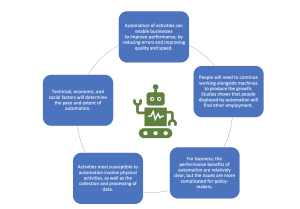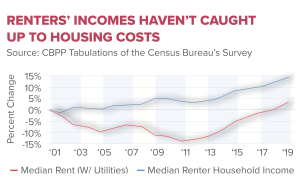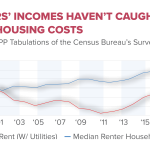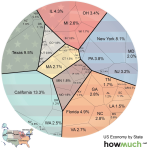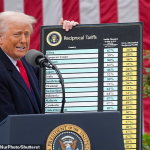Stefanie Stantcheva, a prominent figure in the field of economics and the 2025 recipient of the prestigious John Bates Clark Medal, has made significant waves as a leading economist under 40. Her groundbreaking work at Harvard has shed light on complex tax policy insights that demonstrate how the design of a tax system can either spur innovation and economic growth or stifle it. As the Nathaniel Ropes Professor of Political Economy, she deeply engages with the intricacies of public finance, offering invaluable perspectives that bridge economic theory with real-world implications. Nobel Laureate Eric Maskin once remarked on her capability to dissect intricate economics issues, showcasing her prowess in informing the ongoing dialogue on innovation and economy. Stantcheva’s commitment to understanding the deeply rooted behaviors behind economic policies further cements her role as a vital contributor to the future of Harvard economics and beyond.
In the realm of economic thought, the influence of innovative ideas and effective tax strategies cannot be overstated. The convergence of Stantcheva’s analytical prowess and her focus on public finance serves to enhance our comprehension of how tax policies shape economic behavior and spur advancements across various sectors. By investigating the relationship between taxation and innovation, Stantcheva provides clarity on the potential ramifications that policy shifts can have on both the quantity and quality of innovation in the economy. Recognizing her contributions, this accolade positions her work at the frontier of economic research, significantly impacting the discourse around optimal tax structures. As we delve deeper into her findings, we can better appreciate the intricate dance between fiscal policy and economic development.
Stefanie Stantcheva: Pioneering Tax Policy Insights
Stefanie Stantcheva, a prominent figure in the realm of economics, has made remarkable strides in understanding tax policy’s intricacies. Her groundbreaking research highlights how tax systems can significantly influence economic behaviors and innovation levels within a society. With her appointment as the Nathaniel Ropes Professor of Political Economy at Harvard, Stantcheva’s contributions resonate throughout the academic and policy-making communities, raising vital questions about the design and impact of tax strategies on economic growth.
In her celebrated research paper, ‘Taxation and Innovation in the 20th Century,’ Stantcheva and her collaborators delve into the elastic nature of innovation concerning tax policy changes. They uncover that while higher taxes can stifle the quantity of innovation, the quality of inventions remains largely unaffected. This critical insight suggests that policymakers must carefully balance tax rates to foster an environment that encourages creativity and economic advancement while also providing necessary public funding.
The Significance of the John Bates Clark Medal
The John Bates Clark Medal is one of the most prestigious honors awarded in the field of economics, recognizing exceptional economists under the age of 40. This accolade not only marks personal achievement but also serves to identify rising stars in the economic landscape. By bestowing this award upon Stefanie Stantcheva, the American Economic Association acknowledges her substantial contributions to public finance and her innovative explorations of economic behavior.
Receiving the Clark Medal bolsters Stantcheva’s standing among her contemporaries and emphasizes Harvard’s continued influence in the domain of economics. As noted by her peers, her innovative work not only establishes her as a deserving winner but also inspires the future generation of economists to explore the complex interactions between tax policy and economic growth.
Chile’s Economic Landscape: Lessons from Stantcheva’s Research
Stefanie Stantcheva’s insights into tax policy resonate widely, including lessons applicable to various economies, such as Chile. The nation’s unique economic landscape has undergone numerous transformations, and understanding the interaction of taxes with innovation is crucial for sustainable economic development. Stantcheva’s findings on how high elasticity in innovation responses to tax changes can inform Chilean policymakers as they seek to encourage growth in innovative sectors.
Additionally, Stantcheva’s work prompts critical discussions regarding the design of tax structures that can effectively nurture innovation. By examining her research, Chile can consider how adjustments to existing tax policies might yield significant economic benefits, emphasizing the importance of aligning taxation with incentives that foster entrepreneurship and technological advancements.
Innovative Mindsets: Stefanie Stantcheva and Social Economics
Beyond traditional economic theories, Stefanie Stantcheva approaches the field through a lens that incorporates social dynamics and psychological factors, especially within her work at the Social Economics Lab. This pioneering initiative aims to explore how emotions and public perceptions influence economic policy and decision-making. By bridging emotions and economics, Stantcheva is at the forefront of understanding the complexities of human behavior as it intertwines with fiscal policy.
Stantcheva’s focus on zero-sum thinking and its repercussions for societal attitudes towards economic policies presents a crucial paradigm shift in economic thought. It challenges the prevailing notions and encourages economists and policymakers to consider a broader range of factors that influence economic decisions, ultimately aiming for more holistic approaches to economic growth and innovation.
Tax Policy and the Innovation Economy
In today’s rapidly evolving economic landscape, tax policy plays a pivotal role in shaping the future of innovation. Economists like Stefanie Stantcheva argue that well-designed tax systems can serve as catalysts for creativity and technological advancements. By carefully calibrating tax rates and incentives, governments can cultivate an environment where innovation thrives, fostering entrepreneurial endeavors that propel economies forward.
Moreover, Stantcheva’s research underscores the delicate balance needed in tax policy formulation. Excessive taxation can dampen innovation attempts, yet the right incentives can unleash vast creative potential within industries. This perspective is critical for policymakers aiming to align tax strategies with national economic goals, ensuring that innovation remains a cornerstone of economic prosperity.
Understanding Economic Behavior: The Role of Taxation
Stefanie Stantcheva has significantly contributed to our understanding of how economic behavior is influenced by tax policies. Her meticulous research in public finance explores behavioral responses to taxes, indicating that individuals and businesses react dynamically to tax changes. Such insights are invaluable for economists and policymakers tasked with creating regulations that effectively respond to, and promote, economic growth.
This behavioral understanding is essential, as it sheds light on the potential consequences of various tax reforms. When tax policies are clear and aligned with fostering innovation, individuals are more likely to invest in new ventures or develop groundbreaking technologies. Stantcheva’s research empowers policymakers to envisage tax systems as tools to shape economic behaviors positively and sustainably.
Harvard Economics: Cultivating Future Innovators
Stefanie Stantcheva’s achievements contribute to Harvard’s status as a leading institution in the field of economics. As the Edgerley Family Dean, Hopi Hoekstra, aptly highlighted, Stantcheva’s recognition through the John Bates Clark Medal not only honors her impressive contributions but reflects the strong legacy of economic thought at Harvard. The university continues to attract and nurture talent that will define the future of economic policy and innovation.
The environment fostered at Harvard encourages innovative thinking, equipping students and researchers alike to tackle pressing economic challenges. By supporting initiatives like the Social Economics Lab, Stantcheva exemplifies Harvard’s commitment to blending rigorous academic inquiry with real-world implications, ensuring that the next generation of economists is well-prepared to navigate the complexities of modern economies.
Global Perspectives on Taxation and Economic Growth
The implications of tax policy extend beyond national borders, influencing global economic dynamics. Stantcheva’s work draws attention to how different countries navigate the intricate relationship between taxation and innovation. By examining international case studies, economists can learn how various tax frameworks impact economic development, offering valuable perspectives that could guide reforms worldwide.
As countries strive to find effective routes to sustainable economic growth, the comparative insights gleaned from Stantcheva’s research become increasingly relevant. Understanding the global landscape of taxation allows policymakers to craft innovative solutions that bear fruit across diverse economies, fostering a collaborative approach to shared economic challenges and opportunities.
Economic Behavioral Insights: New Directions in Policy
Stefanie Stantcheva’s innovative research has opened up new avenues for investigating the intersection of economic behavior and policy frameworks. Her approach aims to delve deeper into how people’s mindsets influence their perspectives on policy implications, particularly within the realms of tax policy and economic innovation. By embracing behaviorally informed economics, Stantcheva seeks to equip policymakers with the tools necessary for developing responsive strategies that resonate with the public.
Such insights are especially crucial in today’s complex economic climate, where public engagement and acceptance play vital roles in the success of policy initiatives. Stantcheva’s endeavors remind us that effective economic policy cannot be one-dimensional; it requires an understanding of human behavior, societal perceptions, and emotional context to drive meaningful change.
Frequently Asked Questions
Who is Stefanie Stantcheva and what contributions has she made as an economist?
Stefanie Stantcheva is a distinguished economist and the Nathaniel Ropes Professor of Political Economy at Harvard University. She is recognized for her pioneering insights in tax policy and its relationship with innovation and economic behavior, which has earned her the prestigious 2025 John Bates Clark Medal from the American Economic Association.
What is the significance of the John Bates Clark Medal awarded to Stefanie Stantcheva?
The John Bates Clark Medal is awarded annually to an economist under 40 who has made significant contributions to the field. Stefanie Stantcheva received this honor for her impactful research on public finance and tax policy, highlighting how tax systems can influence innovation and economic activity.
What are some key findings from Stefanie Stantcheva’s research on tax policy and innovation?
In her 2022 paper, ‘Taxation and Innovation in the 20th Century,’ Stefanie Stantcheva found that innovation is highly responsive to changes in tax policy, showing that while higher taxes can reduce the quantity of innovation, they do not negatively affect the quality of inventions.
How does Stefanie Stantcheva view the role of tax policy in shaping the economy?
Stefanie Stantcheva emphasizes that tax policy plays a crucial role in either fostering or hindering innovation and economic activity. She believes that a well-designed tax system can promote innovation, whereas poorly crafted policies can discourage economic growth.
What initiatives has Stefanie Stantcheva founded to further her research in economics?
Stefanie Stantcheva established the Social Economics Lab in 2018 to investigate economic behaviors and policies. The lab focuses on diverse topics such as trade, immigration, climate change, and social mobility.
What institutions recognize Stefanie Stantcheva’s achievements in the field of economics?
Stefanie Stantcheva’s contributions to economics have been recognized by leading academic institutions, most notably through the awarding of the John Bates Clark Medal, which acknowledges her significant research and impact as an economist at Harvard.
What other areas of research does Stefanie Stantcheva engage in besides tax policy?
Besides tax policy, Stefanie Stantcheva’s research encompasses various topics including trade, immigration, climate change, and social mobility, reflecting her broad interest in how economic policies affect societal outcomes.
In what ways has Stefanie Stantcheva’s work influenced public understanding of tax policy?
Through her research on tax policy insights, Stefanie Stantcheva has enhanced public understanding of how tax systems can significantly impact innovation and economic behavior, thereby informing policy design for better economic outcomes.
What are Stefanie Stantcheva’s future research plans?
Stefanie Stantcheva aims to continue her research through the Social Economics Lab, exploring new topics such as the relationship between emotions and economic policies and understanding different mindsets like zero-sum thinking in economic contexts.
| Key Points |
|---|
| Stefanie Stantcheva awarded the 2025 John Bates Clark Medal for significant contributions to economics. |
| Recognized for her research on tax policy, innovation, and behavior. |
| Her work indicates that tax policy has a high elasticity to innovation and can impact economic activity. |
| Co-authored paper: ‘Taxation and Innovation in the 20th Century’ highlights the balance between tax rates and innovation quality. |
| Founded the Social Economics Lab in 2018, focusing on economic issues and policies. |
| Current research explores emotions in policy and mindsets like zero-sum thinking. |
Summary
Stefanie Stantcheva has made remarkable strides in the field of economics, earning her the prestigious John Bates Clark Medal. Her pioneering research into tax policy and innovation demonstrates the profound effects taxation can have on economic activity. By founding the Social Economics Lab, Stantcheva continues to explore critical issues in economics, ensuring her status as a leading figure in the field.


